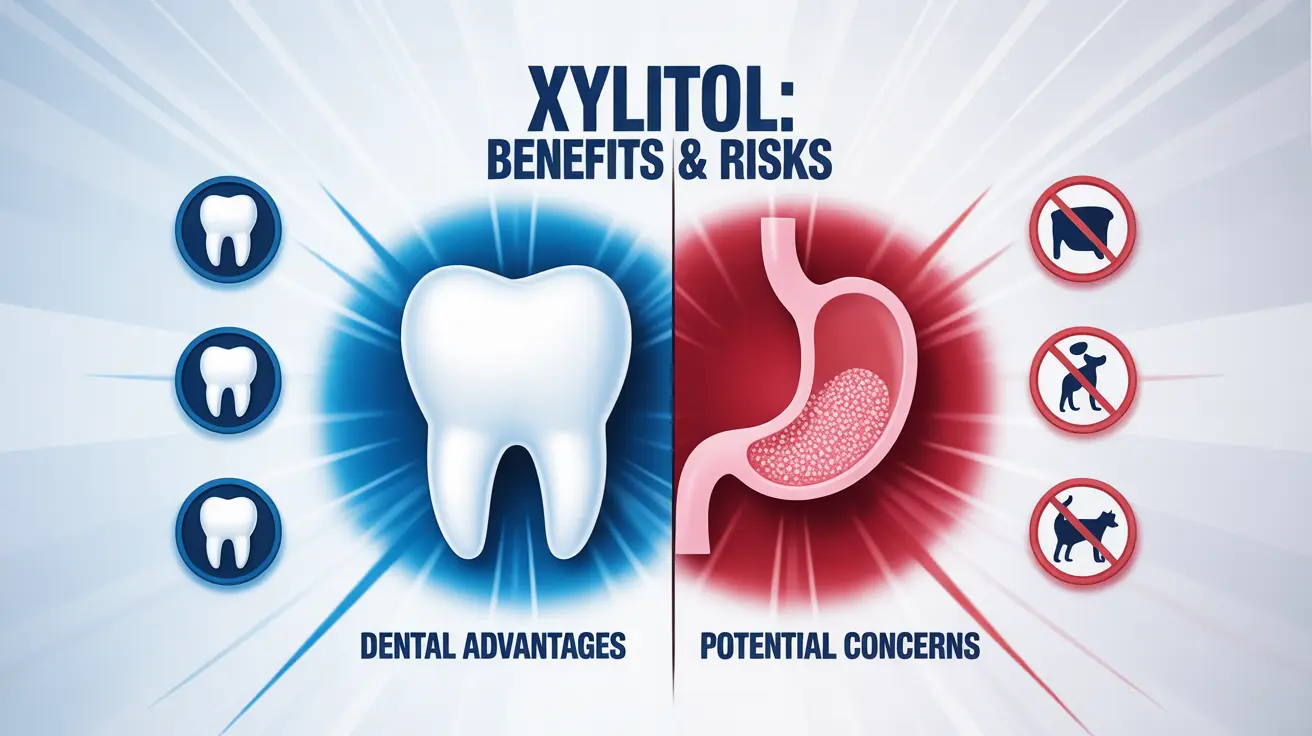As more people seek alternatives to regular sugar, xylitol has gained popularity as a natural sugar substitute. But concerns about its safety and potential health impacts have led many to wonder: is xylitol bad for you? This comprehensive guide examines the evidence behind xylitol's safety profile, benefits, and potential risks.
What is Xylitol and How Does it Work?
Xylitol is a sugar alcohol (polyol) naturally found in small amounts in many fruits and vegetables. It looks and tastes like sugar but has about 40% fewer calories and doesn't raise blood sugar levels significantly. The body doesn't fully digest xylitol, which is why it can have both benefits and potential side effects.
Benefits of Xylitol for Dental Health
One of xylitol's most well-documented benefits is its positive impact on dental health. Unlike regular sugar, xylitol doesn't feed harmful bacteria in the mouth. Instead, it helps prevent tooth decay by:
- Reducing bacterial growth in the mouth
- Decreasing acid production that can erode tooth enamel
- Helping remineralize weak spots in tooth enamel
- Supporting healthy saliva production
Potential Side Effects and Risks
While xylitol is generally recognized as safe by the FDA, consuming too much can lead to several side effects:
Digestive Issues
The most common side effects of excessive xylitol consumption include:
- Bloating
- Gas
- Diarrhea
- Stomach cramps
- Nausea
Pet Safety Concerns
It's crucial to note that xylitol is extremely toxic to dogs. Even small amounts can cause dangerous drops in blood sugar and potential liver failure in canines. Keep xylitol-containing products away from pets.
Safe Consumption Guidelines
The key to safely consuming xylitol is moderation. Most adults can safely consume 10-30 grams per day, divided into several doses. However, it's best to start with small amounts and gradually increase intake to allow your body to adjust.
Recommended Daily Limits
Different groups should observe different consumption limits:
- Adults: Up to 30-40 grams daily
- Children (over 3 years): 20-30 grams daily
- Toddlers (1-3 years): Consult healthcare provider
- Infants: Not recommended
Special Considerations for Health Conditions
People with certain health conditions should exercise additional caution when consuming xylitol:
- Diabetes: Monitor blood sugar response
- Digestive disorders: May need to limit intake
- Pregnancy: Consult healthcare provider
- Heart disease: No known direct risks, but discuss with doctor
Frequently Asked Questions
Is xylitol safe to consume for dental health and preventing cavities? Yes, xylitol is safe and effective for dental health when used as directed. Multiple studies have shown it helps prevent tooth decay and can be beneficial as part of a comprehensive oral care routine.
What are the common side effects of eating too much xylitol? The most common side effects of excessive xylitol consumption include digestive issues like bloating, gas, diarrhea, and stomach cramps. These effects are usually temporary and dose-dependent.
How does xylitol affect heart health and could it increase the risk of heart attack or stroke? Current research shows no direct link between xylitol consumption and increased risk of heart attack or stroke. However, individuals with heart disease should consult their healthcare provider about appropriate intake levels.
What amount of xylitol is considered safe for adults and children? Adults can typically safely consume 30-40 grams daily, while children over 3 years can have 20-30 grams daily. It's best to start with small amounts and increase gradually to avoid digestive discomfort.
Should people with heart disease or diabetes avoid foods containing xylitol? People with heart disease or diabetes don't necessarily need to avoid xylitol, but should consult their healthcare provider about appropriate consumption levels. Diabetics may benefit from xylitol's lower glycemic impact compared to regular sugar.




